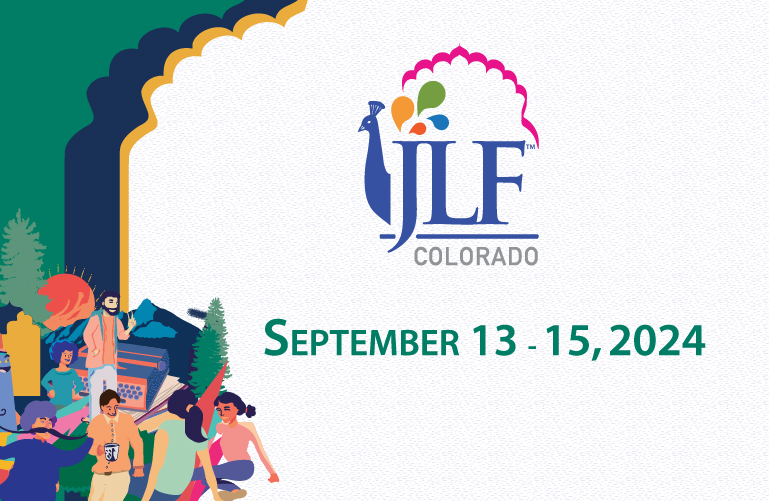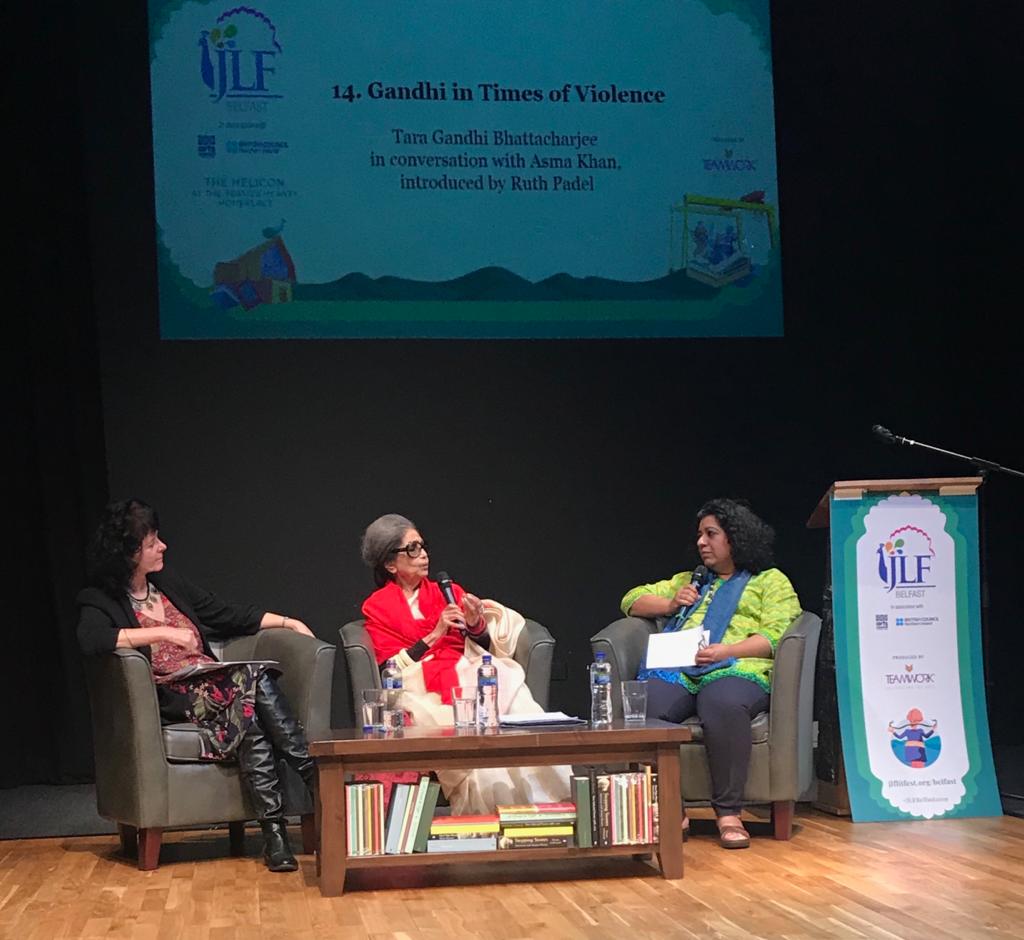


Gandhi in Times of Violence, Tara Gandhi Bhattacharjee in conversation with Asma Khan, introduced by Ruth Padel
There was a full house at the Seamus Heaney HomePlace for a special session with Tara Gandhi Bhattacharjee, who gave the audience a unique insight into her relationship with her grandfather, the architect of India’s non-violent independence movement, Mohandas Karamchand Gandhi.
The discussion was threaded throughout with humorous anecdotes, such as the time when Bhattacharjee was with Gandhi at a meet and greet. She was “excited to shake hands with a white man” and when asked how she was, the young Bhattacharjee replied with a very thorough answer about her general health. Her grandfather took her gently aside to explain that ‘how do you do’ actually only has one reply: ‘How do you do?’ She couldn’t understand it, she joked, when all her grandfather ever did was discuss people’s health…
She recalled another occasion, during a visit to Gandhi in prison, when her grandmother gave her a beautiful handmade sari. These were traditionally passed down in families from grandmother to granddaughter. The young Bhattacharjee took the sari from her grandmother and then ran out of the prison with it - before Gandhi could ask her to give it to the needy.
Asked specifically about her memories of being in the Gandhi household, Bhattacharjee said that, growing up, she didn’t think about it. Her grandfather was just her grandfather. As an adult, however, she has had to reassess her childhood.
“I think of Gandhi as a grandfather – now I’m trying to see so much significance in what he did and said. Today, being a member of Gandhi’s family means being a member of a really large family all over the world. Because Gandhi is loved so much by everyone.”
When asked about his vision for the environment, Bhattacharjee described her grandfather as “the original minimalist” – someone who “didn’t possess anything”.
She added, “He would touch inanimate objects as if he felt the soul in them. He treated everything as though there was life in it.”
Having been the instigator for Indian women’s liberation, Gandhi proactively “brought women to the forefront,” said his granddaughter. He also offered them advice on things such as how to dress practically to help them function more successfully in the working world.
With facilitator Asma Khan noting that none of his grandchildren had gone into politics, Bhattacharjee said her grandfather had never encouraged them to do so. Indeed, she said he was more concerned about them serving their society and said that her family was indeed “devoted to service to society.”
After his release from prison, Gandhi was asked by India’s leaders, “What do we do now?” said Bhattacharjee. His wife had died in jail, but still, “he had the strength,” she said.
Towards the end of his life, however, she said her grandfather was “a despondent man” because he saw that “the weakness of the enemy within is harder than the enemy without”. In short, “he saw the greed for power”.
However, reflecting on her grandfather’s life overall, Bhattacharjee said she would like everyone to remember his humour and sense of adventure. “It was great fun to be with Gandhi,” she said.
She added that Gandhi never spoke of the past. “He was a man of the moment – the now and here – nothing before,” she said. “That’s something that stays with me now.”

Leave a comment